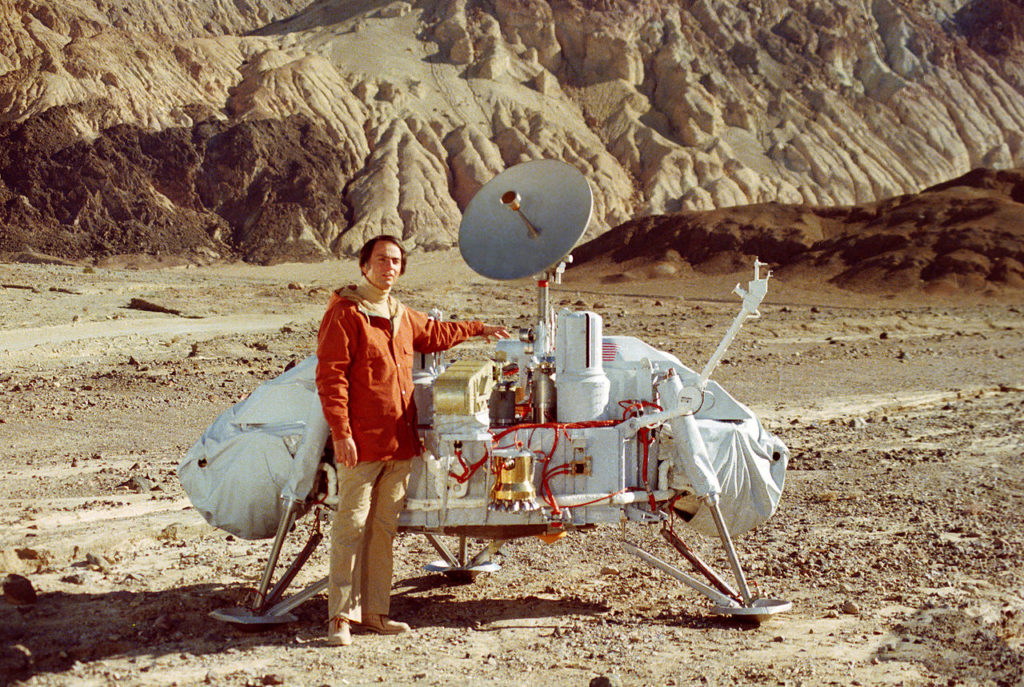Carl Sagan (1934 – 1996) was an American astronomer, influential popularize of science, and author. His scientific achievements and contributions are vast. He published over 600 scientific papers, authored over 20 books, and co-wrote the popular 1980 television series Cosmos.
Early Life

(Credit: NASA)
Carl Sagan was born in 1934 in Brooklyn, New York. As he recalls in his books, he acquired an interest in science at a young age. One influential experience was a visit to the 1939 New York World Fair at the age of four. After that experience he frequently read books on astronomy from his local library. Sagan attended the University of Chicago where he was associated with or taught by many notable scientists and Nobel Laureates. He completed his B.S. in 1955, M.S. in physics in 1955, and in 1960 was awarded his Doctorate in astronomy and astrophysics.
Scientific Career
Carl Sagan had a distinguished career. He first worked as a fellow at the University of Berkley, California for two years before being offered a lecture position at Harvard University. After working at Harvard for a few years he was surprisingly denied tenure. He quickly moved on to Cornell University where he became their director of Laboratory for Planetary Studies. He later was promoted to associate director of the Center for Radiophysics and Space Research. In 1977, he was named the David Duncan Professor of Astronomy and Space Science, a position he held for the rest of his life.
He worked with NASA several of their space missions. He helped determine possible landing sites on Mars for the Viking Program. He was instrumental in sending out the first physical messages sent into space in the form of the Pioneer Plaque and the more famous Voyager Golden Record.

(Credit: Wikimedia Commons)
While he was always a respected scientists among his colleagues, but it was the highly successful Mariner missions to Mars launched Sagan’s public career. People wanted to know more about Mars and Sagan became a sort of spokesperson about the topic. He was selected to appear in several educational films and his exceptional style and clear delivery quickly earned him notoriety. His expertise was in high demand and he soon began appearing on television talk shows. Carl Sagan had become a celebrity scientist.
Bringing Science to the People
Carl Sagan had a burning passion to share his love of science with everyone. He was a prolific author and who made reading about science enjoyable. In 1978 he won a Pulitzer Prize for The Dragons of Eden. The following year he co-wrote the popular PBS televisions series Cosmos. The series was a smashing success and more than 600 million people have viewed the series before the century was over. Sagan died of pneumonia in 1996 at the age of 62.